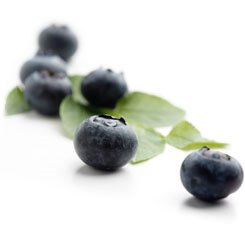
FACTORS OF INFLUENCE
Important tips for protecting your skin from external factors naturally
Environment
Air pollution stresses out the skin, makes it drier, and causes spots of subliminal irritation, which when combined with other negative external or internal influences can lead to inflammation with redness, itchiness, burning, blisters or rashes. However, if enough of these spots of subliminal irritation are able to develop and worsen, they can result in any of the afore mentioned problems even without the help of other factors.
Permanent contact with environmental pollutants such as nitrogen oxides, ozone, fine dust, and dirt particles increase the sensitivity of the skin and accelerate its aging process, because they encourage the formation of free radicals in the skin.
Cigarette smoke also speeds up the development of wrinkles -
even if the person exposed to it is just a passive smoker.
When people with neurodermatitis come into contact with grass pollen,
animal hair, or house dust, their skin often develops eczema in the places
that have been touched.
Our tip for beautiful, healthy skin: Protect your skin!
Both at home and at work, you have to use cleaning
products, acids, alkaline solutions, and solvents that
are extremely unkind to your skin.
Use gloves!
Nutrition
Skin diseased triggered by malnutrition are rare in our affluent society. They occur predominantly in old people and people in need of care. In most cases, the skin becomes dry and sore wounds take longer to heal.
A balanced diet with enough vitamins and minerals helps a person to have healthy skin, and eating the right foods becomes particularly necessary when the skin is confronted with harmful environmental factors, the sun, and a climate that is not kind to it. On the other hand, an excess of B vitamins can worsen acne, too much vitamin A can cause the skin to start peeling, and if large amounts of carotene are consumed on a regular basis, the skin can start to turn yellow. Certain foods can result in the onset of eczema, especially in people with neurodermatitis, but there are no general diet recommendations for sufferers of skin diseases.
Our tip for beautiful, healthy skin: Eat healthily! A balanced diet with lots of fruit and fresh vegetables will provide your body with everything it needs and keep your skin healthy too.
Climate
A moderate, humid climate is ideal for the skin. The sun, the wind, the heat, and the cold all stress the skin, dry it out, and accelerate its ageing process.
In addition to the outdoor climate, the room climate around us also plays a major role. Air-conditioning and heating systems have a profoundly negative effect
on sensitive skin and can even worsen the effect on dry skin, particularly if rooms are not aired enough. As a consequence, the skin requires a great deal of care and protection.
Our tip for beautiful, healthy skin:
Make sure your room climate is healthy!
Dry skin in particular suffers as a result of dry, overheated room air.
Air your home regularly and increase the humidity levels by investing in a humidifier and some house plants!
Skin Ageing
As a person gets older, their skin will normally become drier and thinner.
The horny layer on the surface, however, will become thicker, which will reduce the skins elasticity and contribute to a coarser, rougher surface.
By introducing some anti-ageing measures at an early stage in life, you can slow down the aging process.
But even if you do already have a few wrinkles, care can improve the general appearance of your skin and decelerate further ageing.
Our tip for beautiful, healthy skin: Get plenty of sleep! Sleep is the simplest beauty treatment.
During stressful periods in particular, your skin needs enough sleep to recover.


